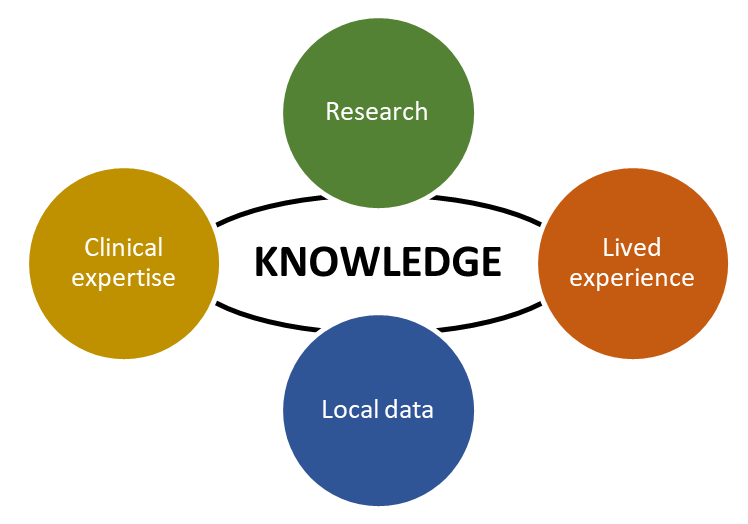Center for Community-Engaged Drug Education, Epidemiology and Research
The Center for Community-Engaged Drug Education, Epidemiology and Research (CEDEER) group at ADAI joins research with the “real-world” to generate innovative, evidence-based, and person-centered responses to the use of opioids, stimulants and other illicit substances.
Our goal is to collect and share knowledge gained from research, local data, clinical expertise, and personal lived experiences of people who use drugs. This knowledge is used to improve policies and services to reduce substance-related harms and improve the lives of people impacted by substance use. Equitable access to relevant and effective care is necessary to address current and historical policies that create inequitable harm to people who use opioids and stimulants. We are actively working to improve the diversity of our team, students, and partners and strive for inclusion in all aspects of our work.
CEDEER serves as a knowledge center for research, data, experience, and ideas.
Our Work

Our diverse team of researchers, epidemiologists, clinicians, health care administrators, harm reductionists, and public health specialists collaborate with a wide range of community partners to:
- Conduct health services research of new models of care and evaluate innovative program models to improve the health of people who use drugs
- Monitor and publish local drug use data from multiple state surveillance and community level sources
- Identify and disseminate current best practices in clinical care, public health approaches, and educational strategies related to illicit opioid and stimulant use
- Provide accurate and timely information, training, educational materials, and technical assistance to community members, clinicians, first responders, other professionals and policy makers
- Utilize qualitative and quantitative data and work with inter-disciplinary partners to create transformative solutions to complex problems
- Participate in and sponsor community-level and academic committees and forums to inform policy and practice
- Provide clinical and program development implementation support for evidence-based and promising models of care for opioid and stimulant use disorder in diverse care settings
Online Resources
StopOverdose.org: Learn about opioid and stimulant overdose and naloxone. Find information on where to get naloxone, how to get treatment for opioid use disorder, and resources for professionals like pharmacists and EMTs. Includes training videos, brochures, marketing materials for education campaigns, a personal risk assessment tool, and more.
LearnAboutTreatment.org: This resource provides information and tools related to treatment options for opioids and stimulants, with content for communities, people with a substance use disorder and their friends and family, and healthcare providers and other professionals. The goal of the page is to provide education so more people can find the treatment that will work best for them.
Tribal Sovereignty and the Indian Health Care System series: This 5-part series introduces essential history and information to strengthen your ability to partner with American Indian/Alaska Native (AIAN) providers/organizations and better serve AIAN people.
Washington State Opioid/Major Drug Interactive Data: These site offers a series of interactive data charts and maps featuring Washington state data related to overdose deaths, treatment admissions, statewide opioid sales, and police evidence testing data for opioids and other drugs.
Focus on Meth Series and Symposium: In this series we’ll be looking at methamphetamine use in Washington State through the lenses of harm reduction, clinical care, and real-world research.
Improve Lives, Prevent Deaths: How to Develop a Comprehensive Approach to Prevent Overdose Deaths and Improve the Health of People Who Use Opioids: This guide highlights actionable strategies that work and their evidence base. It also describes how to integrate these strategies within a comprehensive framework to address the holistic health needs, including overdose care, of people who use drugs.
Community Engaged Projects
Surveys and Interviews with People Who Use Drugs: CEDEER regularly collects community-level data directly from people who use drugs to learn more about their needs to help shape relevant and impactful services and policies. Find reports based on these surveys and interviews here.
Transforming Our Communities Gathering: This annual event brings together diverse participants to understand the perspectives of people who use drugs, understand the importance of equitable access to care and services, build partnerships, and connect people within their communities, and brainstorm new and fresh ideas.
The WA State Community Drug Checking Network (CDCN) is a partnership of organizations around WA State that provide community-level drug checking and related harm reduction services. ADAI provides technical assistance, training, and operational support to the network, in collaboration with Public Health – Seattle & King County.
Drug Checking resources:
- Check out the webpage
- Read the summary for the general public
- Read the summary for drug checking participants
- See online data
- Check out the slides and recording from our Drug Checking webinar (June 2024)
The Community-Law Enforcement Aligning in Response to Substance Use (CLEARS) Project aims to improve interactions between law enforcement and people who use drugs by using a “policy codesign” process, bringing together diverse stakeholders from across the state to develop solutions that fit community needs.
Research with people who use drugs and service providers: Our current, NIH NIDA-funded study is titled Using Data to Drive Action to Reduce Opioid Overdoses in Seattle, WA. This project is developing the data infrastructure to design and continually evaluate a new Subacute Stabilization Center for those at high risk of opioid overdose. Our Lived Expertise Advisory Board is informing our research questions, design, and measures and will ultimately help interpret results.
